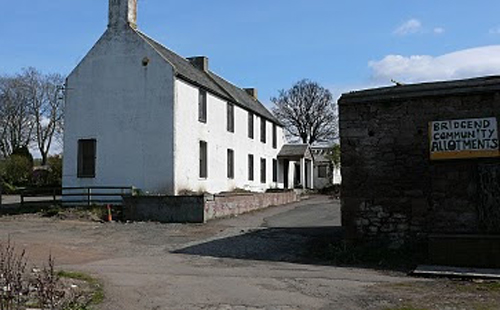Written by:
By Sandra Macaskill and Yasmin Ali
People are instrumental to the effective use of places and space.
Bridgend Inspiring Growth (BIG) is a local voluntary group supported by contracted professionals working towards the development and restoration of Bridgend farmhouse, Edinburgh, to become a community-owned and led multi-purpose space to promote sustainable living practices and outdoor learning. These dual allied aims help root the development of the project in social and socially sustainable aims and outcome.

The path faced by community-led development teams is seldom a smooth one, though in Scotland, issues like the recent advent of the Community Empowerment Bill in Scotland and Community Asset Transfer mechanisms are helping change the landscape for the better.
BIG has been drawing on community input as a generation for ideas for the built environment and landscape for the development project, as well as the securing of the property, from the start of the project. In this way, the on-going process of the making of the place has had the community element embedded into its design philosophy and evolution.
Aspirations regarding the building’s end-uses and users have been much more than words from the outset. BIG has engaged the community in a series of participatory design workshops as well as over a dozen publically-funded extra-curricular classes based around all these core activities, run by a dedicated community development worker.
Given the complexities inherent in placemaking as an ideology and practice, it is inevitable that testing is necessary to get it right.

In BIG’s case, rather than tick-box exercise or afterthought, community engagement is an integral part of shaping the place via its input into both the design process and the eventual function and use of the building. Considered use of the community as a resource for both the process and philosophy of a build project is key to its establishment as a successful, socially sustainable place.
Short-termism, quick fixes and the satisfaction of short-term goals or financial rewards are barriers to holistic thinking. There are arguments that communities, often generating their own financial resources, are more sustainable custodians of the future of their local places in that they will be there for the duration rather than the next political term or priority.
Sandra Macaskill and Yasmin Ali are working on BIG’s project as part of the Business Development Project Management Team led by CaskieCo. Sandra is Director of CaskieCo, a community development agency that works with community groups to acquire assets and develop community enterprises. Yasmin Ali is a freelance architect and urban designer and journalist. BIG received support from The Glass-House as part of the early stage project development, which was instrumental in taking thing forward with a community-led approach.
